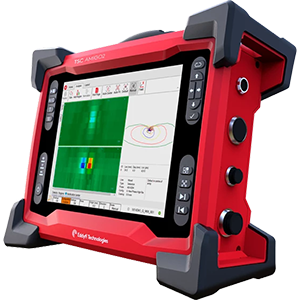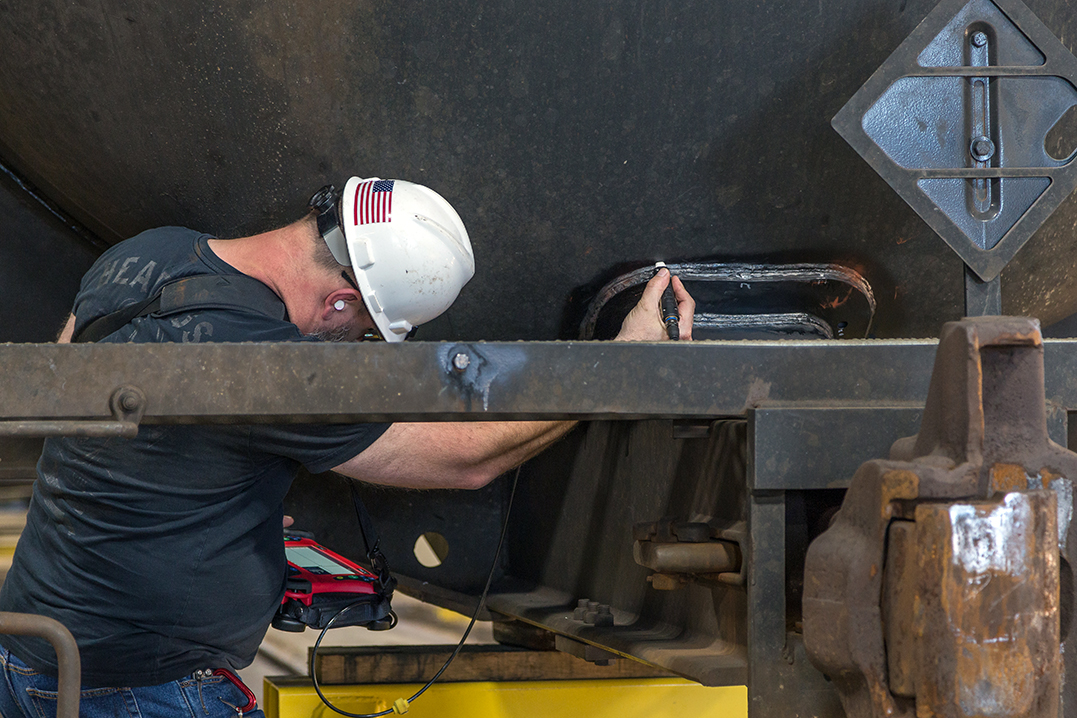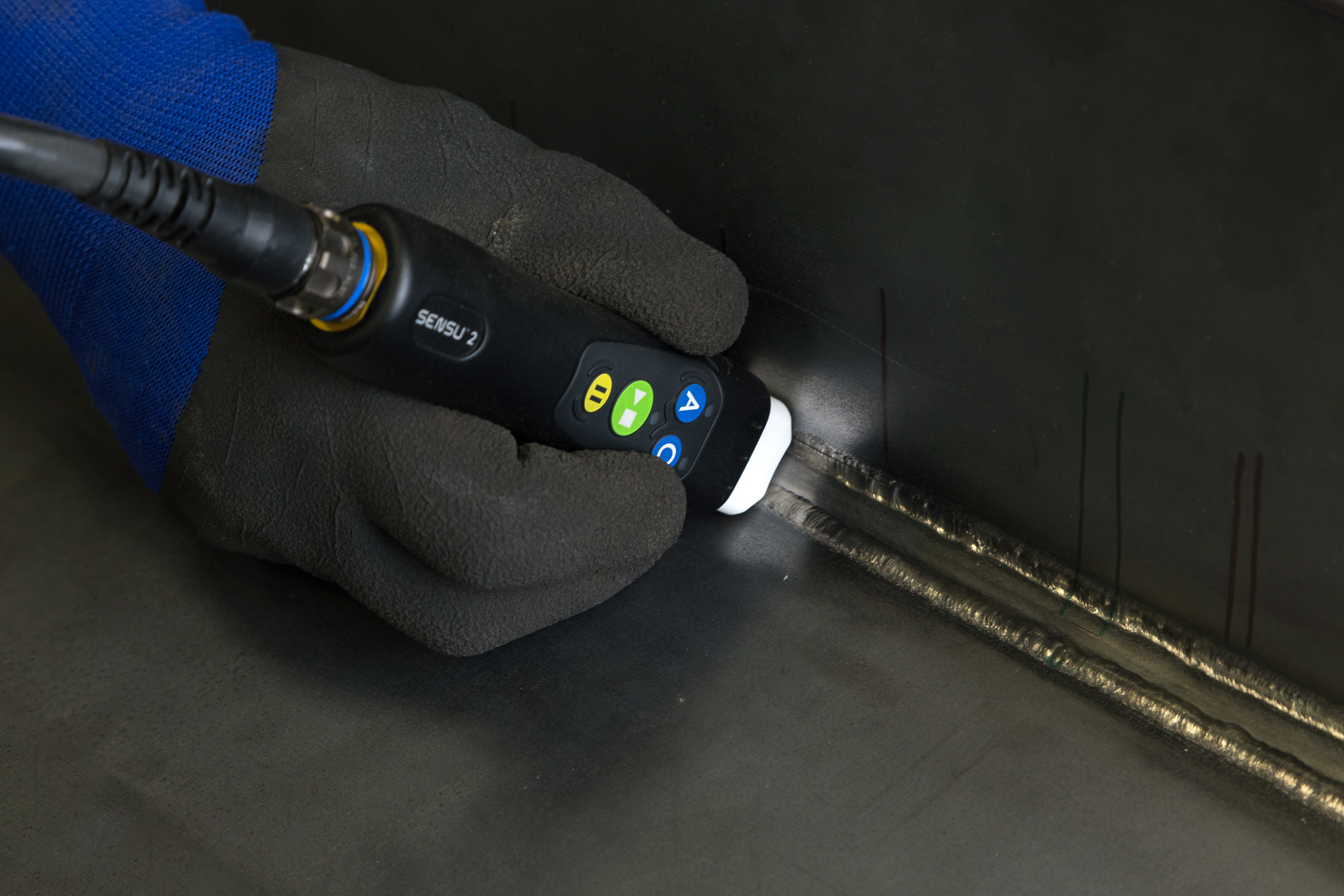Array of Benefits with ACFM® for Tank Car Inspection
Ask an expertEveryday consumers will typically think of trucks when it comes to logistics and deliveries, but the US rail freight system accounts for approximately 16 percent of all shipments by weight. Rail freight offers an environmentally friendly alternative to truck deliveries, requiring 75 percent less greenhouse gas emissions. It is estimated that rail freight tonnage will increase 22 percent by 20351. Railway tank cars, or railcars, can be found carrying a diverse range of essential products from industries including agriculture, food and beverage, chemicals, plastics, and oil and gas.
Rail regulations for hazardous materials are especially important to comply with given the consequence of a potential leak or derailment. Non-destructive testing plays a key role in meeting regulatory compliance. The right non-destructive testing technique should further promote rail transportation’s environmentally friendly benefits while also ensuring the railcar health integrity through auditable records.
The Challenge
Identify a better alternative to the operator dependent conventional inspection methods employed for railway tank cars that are currently resource heavy, time consuming, and limit risk management.
Railcars have been engineered to break apart in a collision, and their welding in particular must be routinely checked for fatigue cracking. Magnetic particle inspection, or MPI, has been used widely in the examination of railroad tank cars but the archaic technique struggles when seeking shallow surface-breaking flaws. In order for MPI to be effective, extensive pre-inspection requirements include grit blasting removal of the tank car’s paint coating. After a highly operator dependent assessment and any repairs made to defective regions, the railcar naturally must then be repainted. With these comprehensive pre- and post-inspection obligations, each tank rail car external weld inspection takes six or seven hours to complete. Moreover, the rail industry largely operates on a paper format and the available inspection reports do not offer high reliability or comparability for any high-level analysis.
The Solution
Alternating Current Field Measurement, or ACFM®, provides more accurate data results, requires minimal preparation work pre- and post-inspection, and empowers owners and operators to better mitigate human, environmental, and business risk.

Amigo™ 2 ACFM Instrument for Tank Car External Weld Inspection
The Alternating Current Field Measurement, or ACFM®, electromagnetic testing technique has been recognized for its remarkable inspection performance by a range of certifying bodies, and US regulators have included ACFM into government regulations for tank rail car weld inspection. ACFM was designed to work in the challenging environment that railcar welds usually present being particularly susceptible as manual welds.

One of the greatest advantages of ACFM is its ability to work through paint and coatings, effectively eliminating the labor-intensive surface preparation requirements of MPI. ACFM offers a higher probability of detection, or PoD, and therefore inspection reliability. Commercially available ACFM instruments enable better inspection planning with increased productivity and advanced yet easy reporting. The digital record allows historical data management and a more robust risk management program thanks to data modelling with more precise information available.
Benefits
- Advances in technology offer even higher productivity, saving millions of dollars each year compared to current inspection methods.
- ACFM removes the need for consumables with a more environmentally friendly inspection approach.

ACFM SENSU2 Pencil Probe for Faster Inspections
Advances in ACFM technology have dramatically reduced railroad freight tank car external weld inspections. With powerful embedded software and purpose-built probes, inspecting an entire tank car is achievable in a mere two hours. A newly available ACFM array probe allows for one inspection pass compared to four with a single sensor probe, the technology covering the typical 16-millimeter, or 0.6-inch, wide weld cap. With the automated sizing functionality removing the need for an encoder, a constant scan speed facilitates defect depth sizing not available with conventional inspection methods.
This significant increase to productivity literally saves asset owners millions of dollars every single year.
With an increasingly prevalent pressure to protect the planet, employing ACFM over techniques that depend on chemical consumables affords a clear benefit while supporting rail freight’s reduced carbon footprint over other transportation and logistical measures. Eddyfi Technologies offers the industry leading ACFM instruments for better railway tank car weld inspections.
Contact us to learn more now.
Interested in how our comprehensive advanced inspection portfolio solves broader non-destructive challenges across the rail sector?
Download our white paper to stay Beyond Current!








